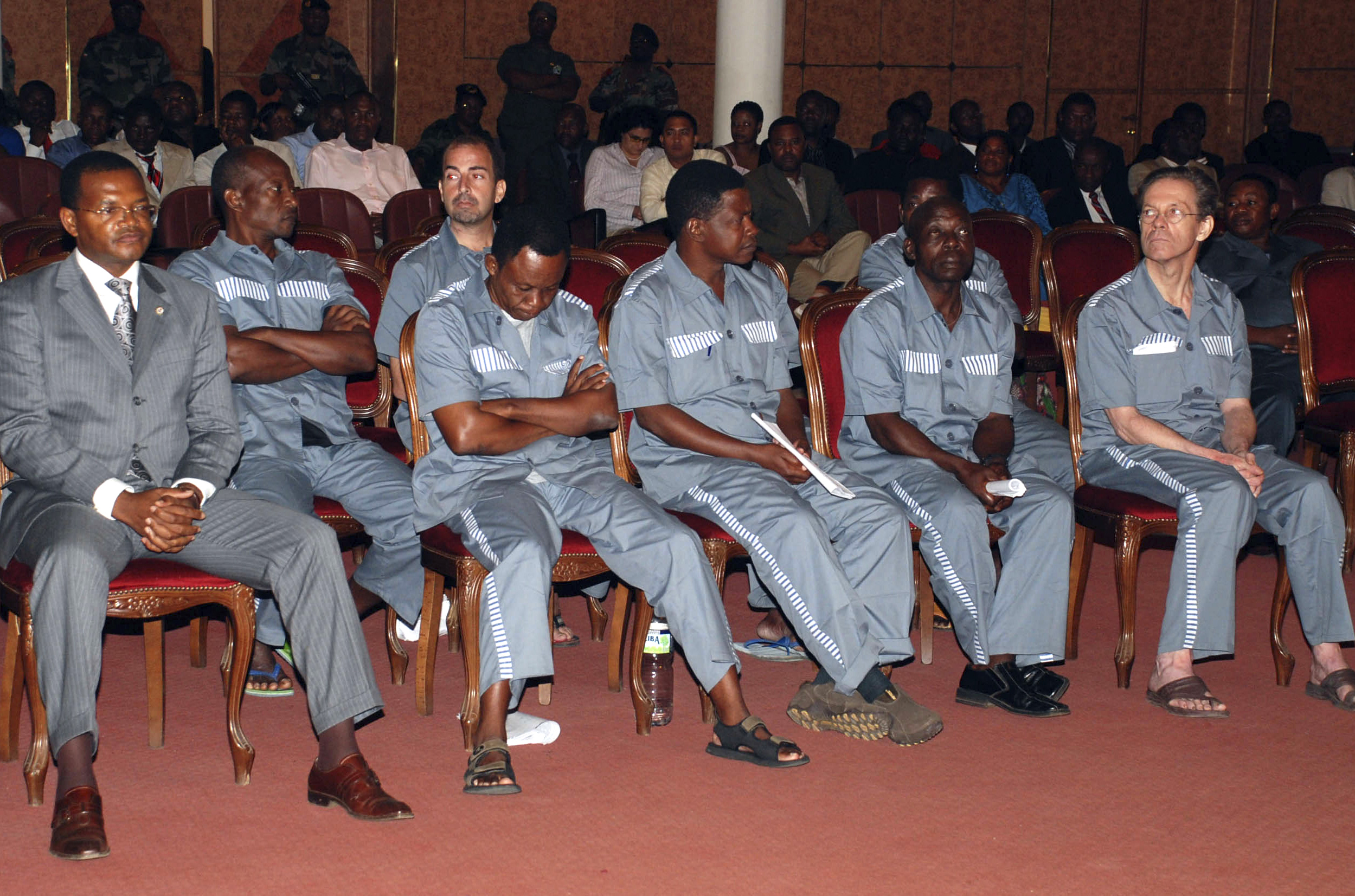How seriously should we take freed mercenary Niek du Toit’s claim that the South African government knew about the planned coup in Equatorial Guinea six months before it took place?
During an interview with Rapport, Du Toit, who has just been released from the notorious Black Beach prison in Equatorial Guinea, claimed SA intelligence agencies knew about the planned coup at least six months before it took place in March 2004.
Big claim. And it raises loads of questions. How does he know? Why did the SA government not stop them? And why did the SA government change its mind? Isn’t it possible that this is precisely what the SA government wanted them to believe, so it could catch them in the act?
Du Toit has answers for some of these questions, but the big problem is that these are mercenaries we are talking about: Mercenary: n. : someone who fights for anything or anyone, and consequently someone who says anything about anyone depending on the given situation.
Yet, there are some ambient indications that suggest Du Toit might, just might, be on to something here.
Both Simon Mann, the former British SAS officer who masterminded the coup attempt, and Du Toit's close friend and business partner Henri van der Westhuizen assured him that they had “inside information” that the South African government would not act against them, Du Toit told Rapport.
This is what happened (according to him, of course): “In September or October 2003, Henri showed me an intelligence intercept he had got from his contacts which showed that the government was aware of what we were planning.
“I gave it to Simon Mann and said the operation was compromised, we couldn’t continue.
Mann's response was that it “was all right, we are covered”.
“I asked Henri what he thought and he said, 'No, you must leave it, you are going to burn your fingers'."
According to Rapport, apparently Du Toit did not know that Van der Westhuizen had met former National Prosecuting Authority boss Bulelani Ngcuka on 17 or 18 February 2004 and told him about the plan. Ngcuka had said little and Van der Westhuizen took it to mean they were not being warned off. He gave the Scorpions an affidavit saying he had tried to get Du Toit to walk away, but that Mann had said the investors “spent too much money on the project and ... would definitely kill them if they withdrew”.
Whether they would be killed or not is perhaps stretching things, but a British journalist who spoke to several people intimately involved in the coup confirmed that Mann was under terrible financial pressure. The group had already managed to trash one plane at this point, so conceivably financiers were getting just a tiny bit irritable.
But there are also unanswered questions about how the group managed to operate for so long without being discovered, despite so many leaks and informants.
One example cited by Rapport was James Kershaw, a young computer wizard who ran the plotter's administration, finances and communications. But Kershaw was also on the payroll of Nigel Morgan, a former military intelligence officer in the British Army's Irish Guards.
Morgan works as a freelance intelligence operative, hawking information to the British and South African spies from his home in the mountains near Harrismith in the Free State.
Mann also had frequent contact with Morgan.
“Everyone knows Nigel Morgan works for the South African intelligence services. I was very worried about that,” Du Toit said.
Yet Du Toit still boarded the plane, perhaps perversely encouraged by the fact that the bumbling operation had not somehow already been discovered.
Following the trial and the subsequent fallout, it has become apparent that the Spanish government was not averse to the notion of the coup succeeding. Could they have encouraged Mbeki to sit on the fence for a time?
There are also dark rumours of the involvement of big oil emanating from Texas somewhere behind the coup; these are gentlemen not to be trifled with.
It is speculated that Ely Calil, a Nigerian-born Chelsea-based Lebanese oil billionaire, was one of the main financiers. Calil denies any knowledge of the plot. He is alleged to have put in $750,000 – not a king’s ransom for someone who apparently has much of the Nigerian oil business stitched up.
It does not seem impossible that Mbeki, as part of his passionate effort to re-engineer perceptions about Africa, might have condoned, at least for a while, the notion of a African brute being ejected from office.
Yet, the opposite proposition might equally be true: everything we know about Mbeki suggests he would have been appalled at the notion of mainly white mercenaries playing free and loose with the sovereignty of African states.
So it’s at least conceivable that he watched and waited: and when they moved, so did he.
By Tim Cohen
Read more: News24
Photo: British mercenary Simon Mann, (R) one of Africa's last "dogs of war", sits in front of a court in Malabo, June 17, 2008. REUTERS/Ceiba News





